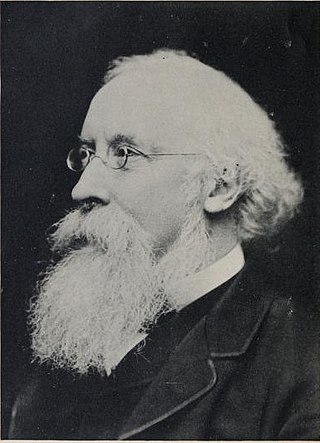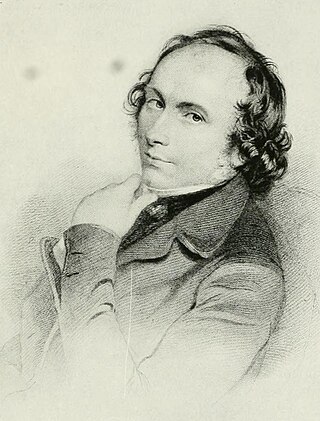Whitley Stokes may refer to:
- Whitley Stokes (Celtic scholar) 1830–1909), Irish lawyer and Celtic scholar, grandson of the physician
- Whitley Stokes (physician) (1763–1845), Irish physician and polymath
Whitley Stokes may refer to:

Lugh or Lug is a figure in Irish mythology. A member of the Tuatha Dé Danann, a group of supernatural beings, Lugh is portrayed as a warrior, a king, a master craftsman and a saviour. He is associated with skill and mastery in multiple disciplines, including the arts. Lugh also has associations with oaths, truth and the law, and therefore with rightful kingship. Lugh is linked with the harvest festival of Lughnasadh, which bears his name. His most common epithets are Lámfada and Samildánach. This has sometimes been anglicised as "Lew of the Long Hand".

Lir or Ler is a sea god in Irish mythology. His name suggests that he is a personification of the sea, rather than a distinct deity. He is named Allód in early genealogies, and corresponds to the Llŷr of Welsh mythology. Lir is chiefly an ancestor figure, and is the father of the god Manannán mac Lir, who appears frequently in medieval Irish literature. Lir appears as the eponymous king in the tale The Children of Lir.
In Irish mythology, Goibniu was the metalsmith of the Tuatha Dé Danann. He is believed to have been a smithing god and is also associated with hospitality. His name is related to the Welsh Gofannon and the Gaulish Gobannus.

Macha was a sovereignty goddess of ancient Ireland associated with the province of Ulster, particularly the sites of Navan Fort and Armagh, which are named after her. Several figures called Macha appear in Irish mythology and folklore, all believed to derive from the same goddess. She is said to be one of three sisters known as 'the three Morrígna'. Like other sovereignty goddesses, Macha is associated with the land, fertility, kingship, war and horses.
In Irish mythology, Dian Cécht was the god of healing, the healer for the Tuatha Dé Danann, and son of the Dagda according to the Dindsenchas.
Ogma is a god from Irish and Scottish mythology. A member of the Tuatha Dé Danann, he is often considered a deity and may be related to the Gallic god Ogmios. According to the Ogam Tract, he is the inventor of Ogham, the script in which Irish Gaelic was first written.

Whitley Stokes, CSI, CIE, FBA was an Irish lawyer and Celtic scholar.
Mongfind is a figure from Irish legend. She is said to have been the wife, of apparent Munster origins, of the legendary High King Eochaid Mugmedón and mother of his eldest three sons, Brión, Ailill and Fiachrae, ancestors of the historical Connachta. She was Eochaid's first wife; his second wife, Cairenn, gave birth to Niall of the Nine Hostages. Several tales depict Mongfind as an adversary of Niall. Mongfind is also said to have been the sister of Crimthann mac Fidaig, King of Munster and the next High King of Ireland, whom she is said to have killed with poison in a bid to make her son king. She drank the poisoned drink to convince Crimthann, and died soon after at Samhain.
Flidas or Flidais is a female figure in Irish Mythology, known by the epithet Foltchaín. She is believed to have been a goddess of cattle and fertility.

William Stokes was an Irish physician, who was Regius Professor of Physic at Trinity College Dublin. He graduated from the University of Edinburgh Medical School with an MD in 1825 later returning the practice in Dublin at Meath Hospital. He went on to create two important works on cardiac and pulmonary diseases – A Treatise on the Diagnosis and Treatment of Diseases of the Chest (1837) and The Diseases of the Heart and Aorta (1854) – as well as one of the first treatises on the use of the stethoscope. He emphasised the importance of clinical examination in forming diagnoses, and of ward-based learning for students of medicine.

Kuno Meyer was a German scholar, distinguished in the field of Celtic philology and literature. His pro-German stance at the start of World War I in the United States was a source of controversy. His brother was the distinguished classical scholar, Eduard Meyer.

"Pangur Bán" is an Old Irish poem written in about the 9th century at or near Reichenau Abbey, in what is now Germany, by an Irish monk about his cat. Pangur Bán, 'White Pangur', is the cat's name, Pangur possibly meaning 'a fuller'. Although the poem is anonymous, it bears similarities to the poetry of Sedulius Scottus, prompting speculation that he is the author. In eight verses of four lines each, the author compares the cat's happy hunting with his own scholarly pursuits.

Acallam na Senórach, is an important prosimetric Middle Irish narrative dating to c. 1200. It is the most important text of the Finn Cycle and at about 8,000 lines is the longest-surviving work of medieval Irish literature. It contains many Finn Cycle narratives framed by a story in which the fianna warriors and Caílte mac Rónáin have survived long enough to relate the tales to Saint Patrick. The work has been seen as a defence of the Irish literary establishment when it came under the scrutiny of Church reformers during the 12th to 13th centuries.
Stokes is a surname, and may refer to:

John Strachan was a scholar of Sanskrit, Ancient Greek and the Celtic languages. Educated at Keith Grammar School, Aberdeen University and Pembroke College, Cambridge, he was a professor at Owens College and the Victoria University of Manchester. He is best remembered for the Thesaurus Palaeohibernicus, a collection of material in Old Irish that he edited together with Whitley Stokes, and for the textbook Old Irish Paradigms and Selections from the Old Irish Glosses, first published in 1904–05 and later revised by Osborn Bergin. Both of these works are still in print. He died in Prestwich, Lancashire, in 1907.
Dáire Doimthech, alias Dáire Sírchréchtach, son of Sithbolg, was a legendary King of Tara and High King of Ireland, and one of the eponymous ancestors of the proto-historical Dáirine and historical Corcu Loígde of Munster. A son of his was Lugaid Loígde, an ancestor of Lugaid Mac Con. In the Scéla Mosauluim, Dáire Doimthech is referred to as one of the five kings of Tara from Munster, or alternatively one of five Dáires to rule at Tara.
Dáire is an Old Irish name which fell out of use at an early period, remaining restricted essentially to legendary and ancestral figures, usually male. It has come back into fashion since the 18th century. The anglicised form of this name is Dara.
Scéla Conchobair maic Nessa or the Tidings of Conchobar mac Nessa is a title invented by Whitley Stokes for a short prose piece from the Ulster Cycle preserved in the 12th-century manuscript, the Book of Leinster. It is interpolated with lore not found elsewhere regarding the branches (halls) of the Ulster court at Emain Macha and the shields of the Ulstermen.
John Stokes was a Dublin-born academic who served (1762–1764) as the first Erasmus Smith's Professor of Mathematics at Trinity College Dublin (TCD). He was the son of engineer Gabriel Stokes (1682–1768), who in 1746 became deputy surveyor general of Ireland, and Elizabeth King (1689–1751). John's brother Gabriel (1731–1806) was also a mathematician at TCD.

Whitley Stokes (1763–1845) was an eminent Irish physician and polymath. A one-time United Irishman, in 1798 he was sanctioned by Trinity College Dublin for his alleged republicanism. In 1821, he published a rebuttal of Robert Malthus's thesis that, as spurs to population growth, in Ireland attempts to improve the general welfare are self-defeating. The country's problem, Stokes argued, was not her "numbers" but her indifferent government.